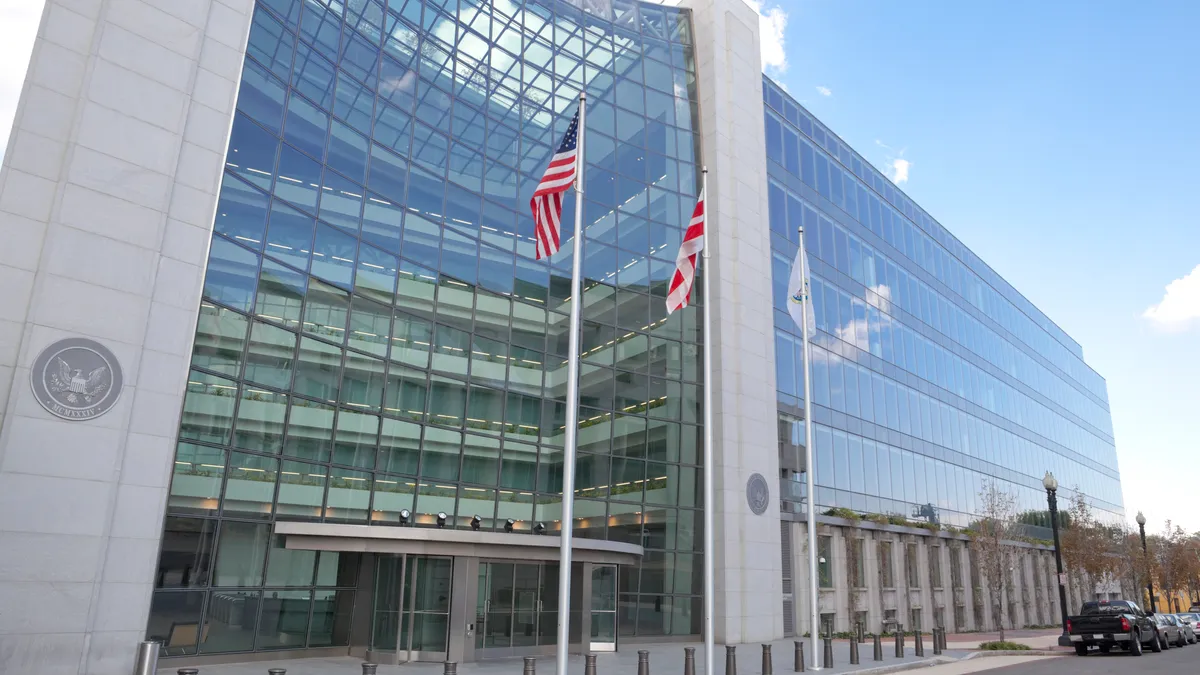Dive Brief:
- The Securities and Exchange Commission charged three former top executives at a failed pharmacy startup with overstating revenue and defrauding investors by more than $170 million.
- The former CEO and former CFO of Medly Health Inc. allegedly provided financial information to existing and prospective investors that distorted the company’s financial health, partly by citing millions of dollars worth of bogus prescriptions recorded by the former head of Rx operations, the SEC said Thursday.
- After achieving a $900 million valuation at the close of a Series C fundraise in August 2022, Medly filed for bankruptcy protection in December of that year and later sold all of its assets for just $19 million. “Startups that seek to raise capital from investors through deceitful conduct remain a continued focus for the commission,” Sheldon Pollock, the SEC’s associate director of enforcement in New York, said in a statement.
Dive Insight:
Gary Gensler has stepped up enforcement of securities laws since becoming chair of the SEC in 2021, targeting wrongdoing such as investor fraud, cyber-related misconduct and misleading financial reporting and disclosure.
The agency said in March that it plans to open 967 investigations in fiscal year 2025, 5% more than in fiscal year 2023. It asked Congress to approve a $812,000 budget for enforcement for fiscal year 2025, 18% more than the outlay in fiscal year 2023.
Medly leadership marketed the company to investors as a disruptor of the pharmacy industry, saying it would provide comprehensive online service from the writing of a prescription to the delivery of medication, the SEC said. With such a business model, Medly would limit the need for bricks-and-mortar pharmacies and minimize other costs.
“Investors were told that Medly was succeeding wildly as the ‘nation’s fastest-growing digital pharmacy’ with exploding revenue growth,” according to the SEC. “In reality, much of Medly’s revenue and revenue growth was built on fake prescriptions and accounting irregularities.”
Beginning in 2020, the company’s head of Rx operations allegedly created hundreds of fake prescriptions in the company’s pharmacy management system, prompting millions of dollars of bogus revenue.
The executive, while knowing that his company was engaged in fundraising, linked the prescriptions to Medly patients who were marked as “deceased,” or concocted fake patient profiles, the SEC said.
The head of Rx operations also allegedly conjured up health insurance companies that were supposedly “billed” for the bogus prescriptions, including medications that cost more than $172,000 each, according to the SEC.
The scheme started to come to light in late 2020 when an investor voiced concern to the CEO and CFO about a substantial and growing debit balance in an expense accrual account that was listed under the “Other Current Liabilities” line item, the agency said.
In November 2020 Medly hired “multiple accounting firms to assist in ‘cleaning up’ its financial statements,” the SEC said. Soon thereafter, the CFO told one of the accounting firms that Medly may have overstated its revenue by as much as 20%.
Nevertheless, Medly continued to raise funds from investors and used the funds in part to buy a retail pharmacy chain with 28 brick-and-mortar locations and more than 800 employees, the SEC said. By the end of 2022, Medly operated 32 pharmacy locations or distribution centers throughout the U.S.
The CEO and CFO over time persuaded investors to buy more than $170 million in Medly stock and convertible notes. Their scheme started to unravel in April 2022, the SEC said, and Medly filed for Chapter 7 liquidation in April 2023.
“Those who had invested in Medly lost their entire investment,” the SEC said.















